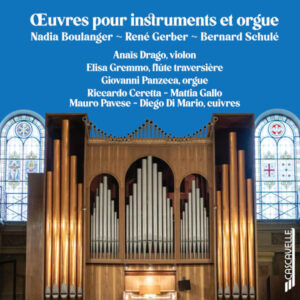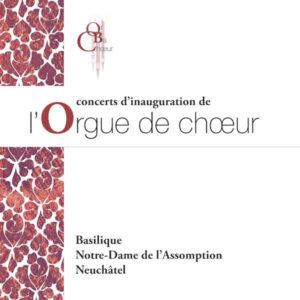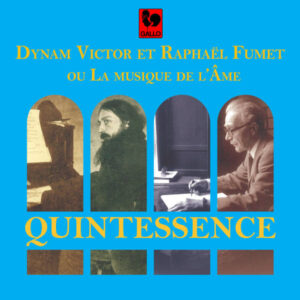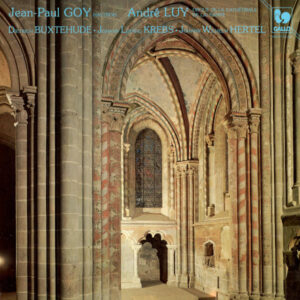Extraits / Excerpts
Works for Trumpet and Organ - Paul Falentin, Bernard Heiniger
Works for Trumpet and Organ – Paul Falentin, Bernard Heiniger
Giambattista MARTINI: Toccata in D Major for Organ (Arr. Marie Claire Alain) – Sonata al’Postcommunio – Largo in E Major – Tomaso ALBINONI: Concerto For Trumpet and Organ in F Major, WoO (Arr. Marie Claire Alain): I. Allegro – II. Adagio – III. Allegro – Johann Sebastian BACH: Jésus que ma joie demeure, BWV 147 – Jean THILDE: Suite in D Major for Trumpet and Organ (After Purcell): I. Entrée – II. Marche – III. Menuet et Sicilienne – IV. Prélude et Ronde – Eric SCHMIDT: Rhapsodia Sacra pour trompette et orgue: I. Modéré – II. Lent – III. Vivace.
Paul Falentin, Trumpet
Bernard Heiniger, Organ
Tomaso Albinoni: The “Dilettante of Genius” and Venetian Composer
Early Life and Musical Influences
Tomaso Albinoni, born in 1671 in Venice, came from a prosperous family, his father owning a major stationery and cardboard business. Devoted to music from an early age, young Albinoni lived an artist’s dream, free from material concerns. The nature of his father’s business gave him direct connections with Venice’s musical circles. Though his teachers remain unknown, Albinoni’s first sonata collection (1694) reveals influences from renowned composers like Vitali and Corelli. This collection is also where we find his distinctive label: “Tomaso Albinoni musico di violino dilettante veneto.”
Rise to Fame and Operatic Success
In the same year, Albinoni found great success with his first opera, Zenobia, Regina di Palmira. This debut led to over fifty operas, which played throughout Europe. His growing reputation soon attracted publishers who recognized his exceptional talent, admiring him as a violinist, singer, and composer.
Transition to Professional Musician
After his father’s death in 1708, Albinoni’s family finances were left in disarray, requiring the heirs to settle debts. No longer carrying the title “dilettante veneto,” Albinoni now relied on his music to support his family, which included six children. He established a vocal school that became widely popular and composed operas for Venice, where he lived until his passing in 1750 at 79.
A Lasting Legacy in Instrumental Music
Today, it is impossible to fully assess Albinoni’s genius as an opera composer, a skill so celebrated by his peers, as none of his operas have survived intact. However, his instrumental works have endured, securing this “dilettante of genius” a prominent position among Italian composers.
Bernard Heiniger: A Journey of Excellence at the Organ
Distinctions and Awards
Bernard Heiniger graduated from the Conservatoire de Genève with a Prize of Virtuosity awarded in Pierre Segond’s class. He also distinguished himself by winning a prize at the prestigious International Competition of Musical Performance in Geneva in 1970 and the first prize at the National Swiss Television Competition in 1972.
Career as an Organist and Teacher
In addition to being the organist at the French Church of Bienne, Bernard Heiniger is a professor at the Conservatoire de Bienne, where he teaches organ for the Société des Organistes Jurassiens.
Cultural Commitment and Promotion of Young Talents
As the artistic director of the Cultural Association of Désaignes in Ardèche, he is also the founder of the International Festival of Young Organists in Bienne, aimed at showcasing new talents in the field of organ music.
VDE-GALLO (1975)
- Categories
- Composers
- Interprets
- Booklet












